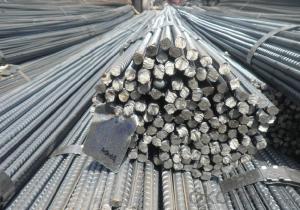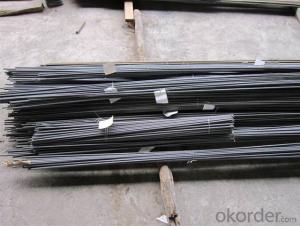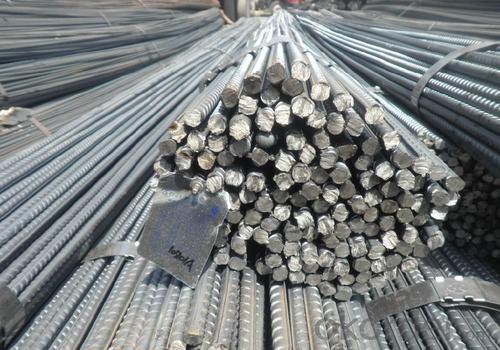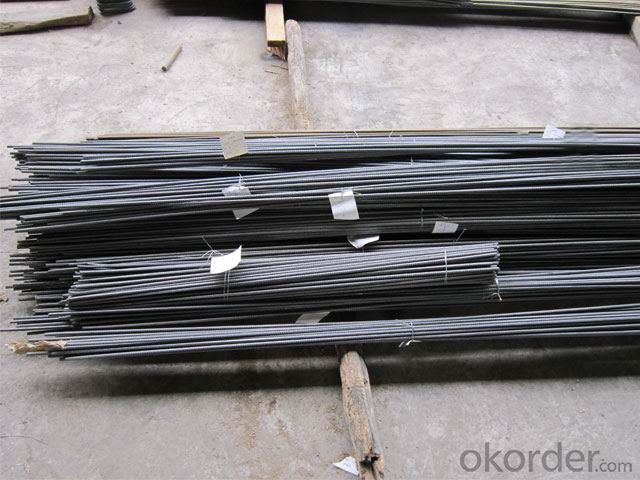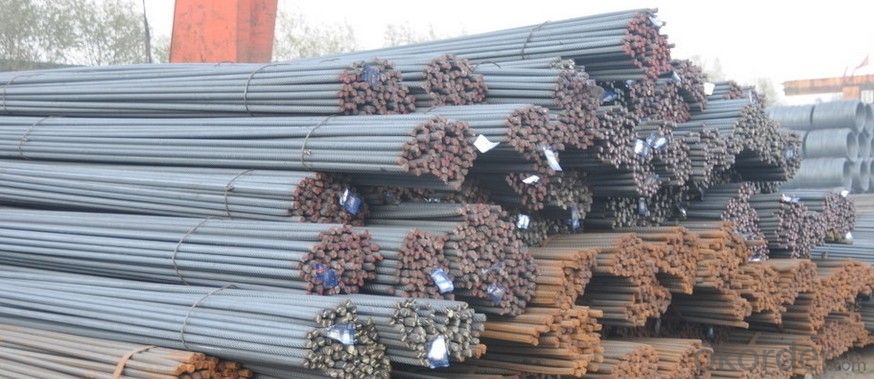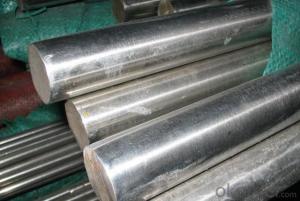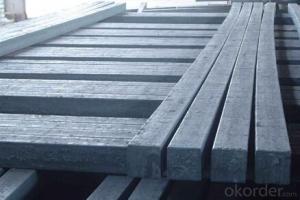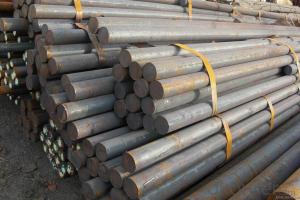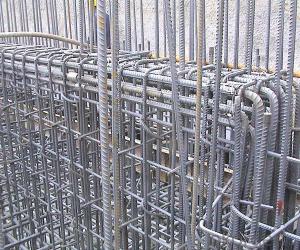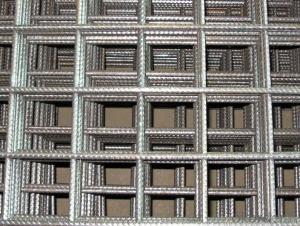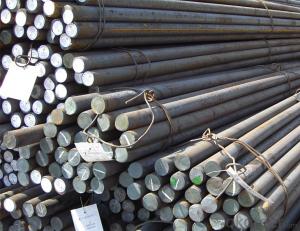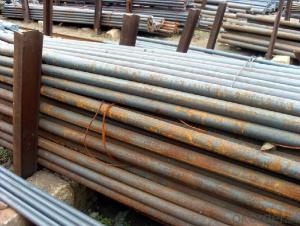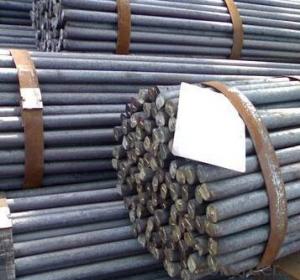Q235 Deformed Bar Steel Rebar Reinforcing Steel Bar
- Loading Port:
- Tianjin
- Payment Terms:
- TT OR LC
- Min Order Qty:
- 25 m.t.
- Supply Capability:
- 50000 m.t./month
OKorder Service Pledge
OKorder Financial Service
You Might Also Like
Specification
Q235 Deformed Bar Steel Rebar Reinforcing Steel Bar
Product Description:
1. Length: 6m-12m as standard.
2. Reputation: first, best competitive price, high quality, quotes price promptly and confirm the delivery on time!
3. Application : Used for civil engineering construction,like housing bridges roads and railway,ect.
4. Price: Keep lower operating costs so as to offer competitive price for our clients.
5. Minimum Order Quantity: 25MTS as per size.
6. Invoicing: Actual or Theoretical Weight Basis as buyer’s request.
7. Payment terms: TT payment in advance or irrevocable LC at sight.
8. Delivery time: 25-30 days after we receive your TT payment at sight.
Specifications:
Specifications | Round bar | Diameter: 4mm~800mm |
Angle bar | Size: 3mm*20mm*20mm~12mm*800mm*800mm | |
Square bar | Size: 4mm*4mm~100mm*100mm | |
Flat bar | Thickness: 2mm~100mm | |
Width:10mm~500mm | ||
Hexagonal | Size: 4mm~800mm | |
Length | 2m,4m,5.8m,6m,11.8m,12m or as required. | |
Advantage:
1.low price
2.high quality
3.big supplier in china
Application:
Applies to chemical industry, shipping industry, manufacturing industry,construction,decorate Industry,electric power,pump shafts, anitary wares,furniture handles,boiler,high temperature resistant,low temperature resistant, corrosion resistant.
Product Show:
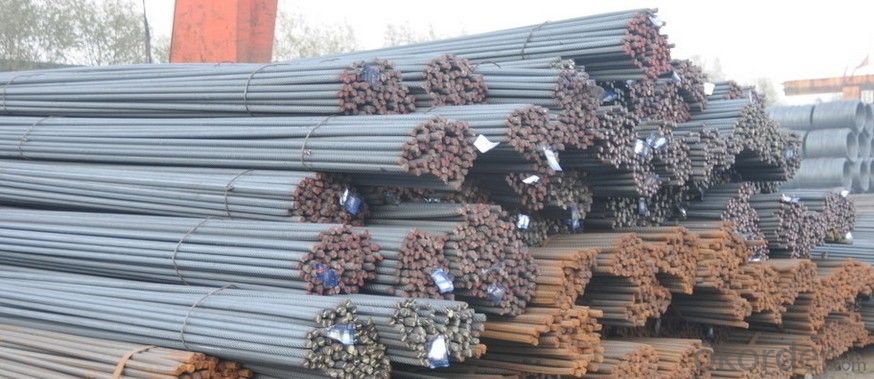
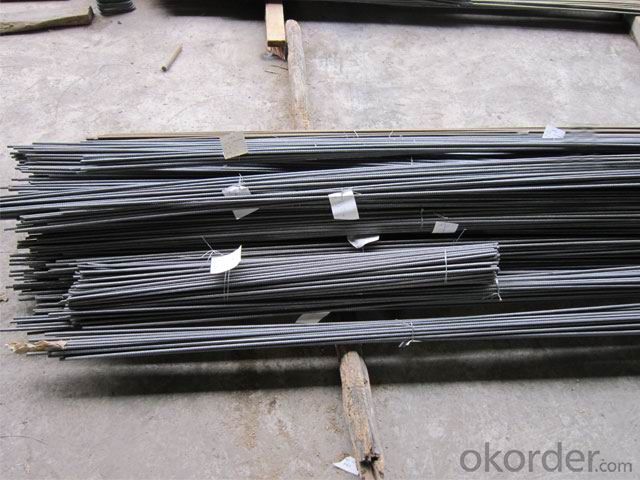
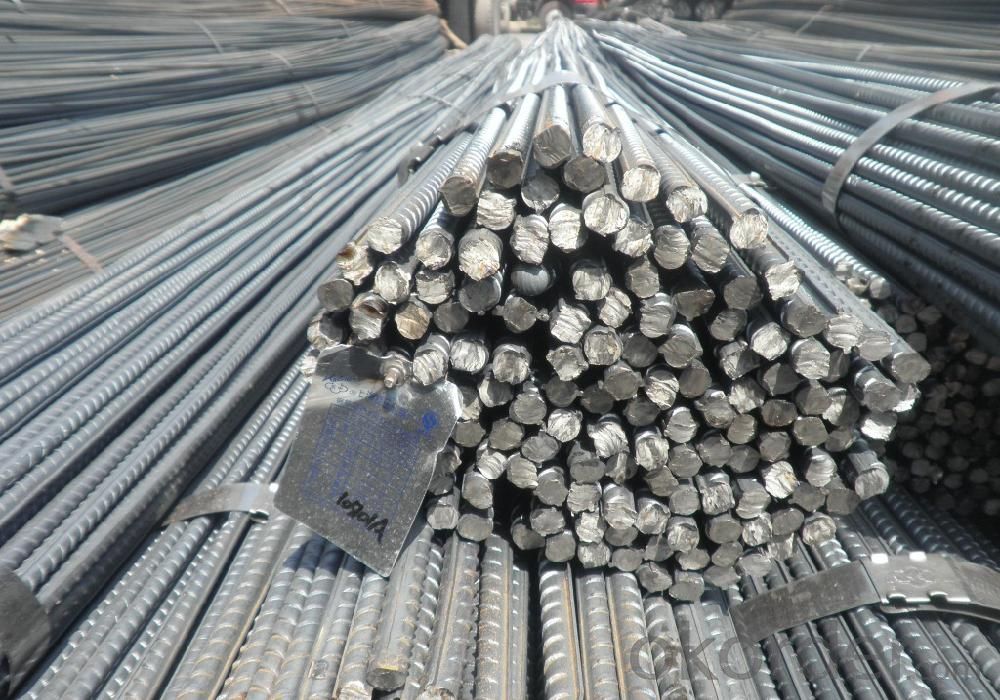
- Q: How is special steel used in the production of bearings?
- Special steel is used in the production of bearings due to its unique properties such as high durability, corrosion resistance, and wear resistance. It helps in increasing the lifespan and performance of bearings, allowing them to withstand high loads and rotational speeds. Additionally, the special steel used in bearings undergoes precise heat treatment and surface finishing processes to ensure optimal performance and reduce friction, resulting in smoother operations in various industries such as automotive, aerospace, and manufacturing.
- Q: What are the advantages of using special steel in the renewable energy sector?
- Special steel offers several advantages when used in the renewable energy sector. Firstly, it provides enhanced strength and durability, allowing for the construction of robust and reliable components such as wind turbine towers and solar panel frames. This ensures prolonged operational life and increased resistance to harsh environmental conditions. Additionally, special steel exhibits excellent corrosion resistance, making it suitable for offshore wind farms and solar installations in coastal areas. Moreover, this type of steel can withstand extreme temperatures, enabling its use in concentrated solar power plants and geothermal energy systems. Overall, the use of special steel in the renewable energy sector enhances performance, extends lifespan, and improves the efficiency of renewable energy infrastructure.
- Q: What are the properties of shock-resistant steel?
- Shock-resistant steel, also known as impact-resistant steel, possesses several key properties that make it highly resistant to sudden impacts or shock loads. These properties include high toughness, excellent strength, and superior ductility. Shock-resistant steel is designed to absorb and distribute the energy generated from an impact, thereby preventing fractures or failure. It can withstand sudden forces without deforming or breaking, making it ideal for applications in industries such as construction, automotive, and aerospace, where impact resistance is crucial.
- Q: What is the significance of tensile strength in special steel?
- Tensile strength is of great significance in special steel because it determines the steel's ability to withstand stretching or pulling forces without breaking or deforming. This property is crucial in various industries, especially in manufacturing and construction, where high tensile strength is required for structural integrity and safety. Special steel with superior tensile strength can withstand heavy loads, resist impacts, and provide durability, making it highly sought after in applications such as building infrastructure, automotive manufacturing, and aerospace engineering.
- Q: What is the role of carbon in special steel?
- Carbon plays a crucial role in special steel as it significantly influences its properties and performance. Special steel refers to a category of steel that is specifically engineered to exhibit exceptional characteristics, such as high strength, hardness, wear resistance, or corrosion resistance. Carbon is one of the main alloying elements in special steel, and its content determines many of these desired properties. Firstly, carbon is responsible for increasing the strength and hardness of special steel. As carbon is added to the iron matrix, it forms iron carbides, which are extremely hard and provide structural integrity to the steel. The higher the carbon content, the greater the hardness and strength of the steel. This makes special steel suitable for applications requiring high toughness, durability, and resistance to deformation, such as in the manufacturing of tools, dies, and industrial machinery components. Secondly, carbon contributes to the wear resistance of special steel. The presence of carbon enhances the steel's ability to resist abrasion and withstand extreme conditions. This is particularly important in industries like mining, construction, and oil and gas, where components are subjected to intense wear and friction. Furthermore, carbon also plays a crucial role in determining the machinability and weldability of special steel. The carbon content affects the steel's response to heat treatment, making it easier or harder to machine or weld. The right balance of carbon content is essential to ensure that special steel can be easily worked on and fabricated into complex shapes without compromising its properties. Lastly, carbon influences the corrosion resistance of special steel. While steel is generally prone to corrosion, the addition of certain amounts of carbon can enhance its resistance to rusting and other forms of corrosion. This is particularly important in applications where the steel is exposed to harsh environments, such as marine or chemical industries. In summary, carbon plays a vital role in special steel by increasing its strength, hardness, wear resistance, machinability, weldability, and corrosion resistance. The precise amount of carbon added to the steel is carefully controlled to achieve the desired properties for specific applications, making special steel a highly versatile and sought-after material in various industries.
- Q: How does special steel contribute to the corrosion resistance of products?
- Special steel contributes to the corrosion resistance of products by incorporating specific alloying elements that enhance its ability to withstand the effects of corrosion. These alloying elements, such as chromium and nickel, form a protective layer on the surface of the steel, known as a passive film. This passive film acts as a barrier, preventing oxygen and moisture from reaching the underlying metal, thus reducing the likelihood of corrosion. The high levels of chromium in special steel, for example, enable the formation of a dense and stable chromium oxide layer on the surface. This layer acts as a physical barrier, preventing the diffusion of corrosive agents and inhibiting the formation of rust. Additionally, the presence of nickel in the alloy further enhances the corrosion resistance of the steel by promoting the formation of a more uniform and adherent passive film. Moreover, special steel can be specially treated or processed to enhance its corrosion resistance. Techniques such as heat treatment and surface coating can modify the structure and composition of the steel, promoting the formation of more stable passive films and reducing the susceptibility to corrosion. These treatments also help to improve the mechanical properties of the steel, making it more durable and resistant to external factors that may lead to corrosion. In summary, the use of special steel in various products contributes to their corrosion resistance by incorporating alloying elements and employing specific treatments that promote the formation of protective passive films. This, in turn, prolongs the lifespan of the products and ensures their performance and integrity, even in harsh and corrosive environments.
- Q: What are the main advantages of using special steel in the mining industry?
- The main advantages of using special steel in the mining industry are its exceptional strength, durability, and resistance to wear and tear. Special steel can withstand the harsh conditions and extreme forces encountered in mining operations, ensuring the longevity of equipment and machinery. Additionally, its high resistance to corrosion and heat makes it ideal for mining processes involving chemicals and high temperatures. Overall, the use of special steel enhances the efficiency, safety, and productivity of mining operations.
- Q: How does special steel perform in tooling applications?
- Due to its unique properties and characteristics, special steel excels in tooling applications. Also known as tool steel, this type of steel is specifically designed and manufactured to endure the challenging conditions of tooling applications. One major advantage of special steel is its exceptional hardness. Tooling applications often involve cutting, shaping, and forming tough materials, and the hardness of special steel enables it to withstand the extreme pressures and forces involved in these processes effectively. Additionally, this hardness helps maintain the cutting edges' sharpness for extended periods, ensuring consistent and precise performance. Moreover, special steel demonstrates excellent resistance to wear. Tooling applications typically involve repetitive and abrasive actions, which can cause significant wear and tear on the tools. However, the wear resistance of special steel ensures that the tools maintain their performance and longevity, reducing the need for frequent replacements and downtime. Another crucial aspect of special steel is its remarkable toughness. Tooling applications often subject the tools to sudden impacts and shock loads. Special steel's toughness allows it to absorb these impacts without fracturing or breaking, making it highly reliable and durable in such applications. In addition, special steel offers good heat resistance and dimensional stability. Tooling applications frequently involve high temperatures, and special steel's ability to withstand heat prevents it from losing its hardness and other mechanical properties. This ensures consistent performance and dimensional stability, resulting in accurate and precise tooling. Lastly, special steel is also recognized for its corrosion resistance. Tooling applications may expose the tools to moisture, chemicals, or harsh environments, which can lead to corrosion and degradation. The corrosion resistance of special steel protects the tools from these corrosive elements, prolonging their lifespan and maintaining their performance. To conclude, special steel's hardness, wear resistance, toughness, heat resistance, dimensional stability, and corrosion resistance make it highly effective in tooling applications. These properties enable special steel tools to withstand the demanding conditions of tooling applications, ensuring reliable and long-lasting performance.
- Q: How does special steel contribute to the elasticity of products?
- Special steel contributes to the elasticity of products due to its unique composition and manufacturing process. The elasticity of a material refers to its ability to return to its original shape or size after being deformed or stretched. In the case of special steel, its specific properties enhance the elasticity of products in several ways. Firstly, special steel is often alloyed with elements such as nickel, chromium, or vanadium, which improve its mechanical properties. These alloying elements modify the crystal structure of the steel, resulting in a material that has a higher yield strength and tensile strength. This increased strength allows the steel to withstand higher levels of stress and deformation without permanent deformation or failure. Additionally, the manufacturing process of special steel involves precise control over its microstructure. Through techniques such as heat treatment and cold working, the steel's grain size and distribution are optimized. This controlled microstructure enhances the material's elasticity by promoting a uniform deformation mechanism. When a product made from special steel is subjected to external forces or stress, the steel's microstructure allows for the redistribution of these forces, minimizing localized deformation and maximizing overall elasticity. Furthermore, special steel often possesses a high carbon content, which contributes to its elasticity. The carbon atoms within the steel form strong chemical bonds with the iron atoms, resulting in a material with increased hardness and resistance to deformation. This enhanced resistance to deformation allows the steel to exhibit greater elasticity when subjected to external forces. Overall, special steel's unique composition, precise manufacturing processes, and specific alloying elements all contribute to its ability to enhance the elasticity of products. By incorporating special steel into the design and construction of various products, manufacturers can ensure that these products can withstand deformation and return to their original shape, thus increasing their durability and longevity.
- Q: How does special steel play a role in the defense sector?
- Special steel plays a crucial role in the defense sector due to its exceptional strength, durability, and resistance to heat, corrosion, and impact. It is used to manufacture various defense equipment and vehicles, including tanks, submarines, aircraft carriers, and ballistic missile systems. Special steel ensures the structural integrity and performance of these defense assets, providing enhanced protection, firepower, and overall operational efficiency in critical military operations.
Send your message to us
Q235 Deformed Bar Steel Rebar Reinforcing Steel Bar
- Loading Port:
- Tianjin
- Payment Terms:
- TT OR LC
- Min Order Qty:
- 25 m.t.
- Supply Capability:
- 50000 m.t./month
OKorder Service Pledge
OKorder Financial Service
Similar products
Hot products
Hot Searches
Related keywords
